LEGION Season One Review
This review contains minor spoilers, but in a show as cryptic as this one, you’ll probably thank us for the heads up.
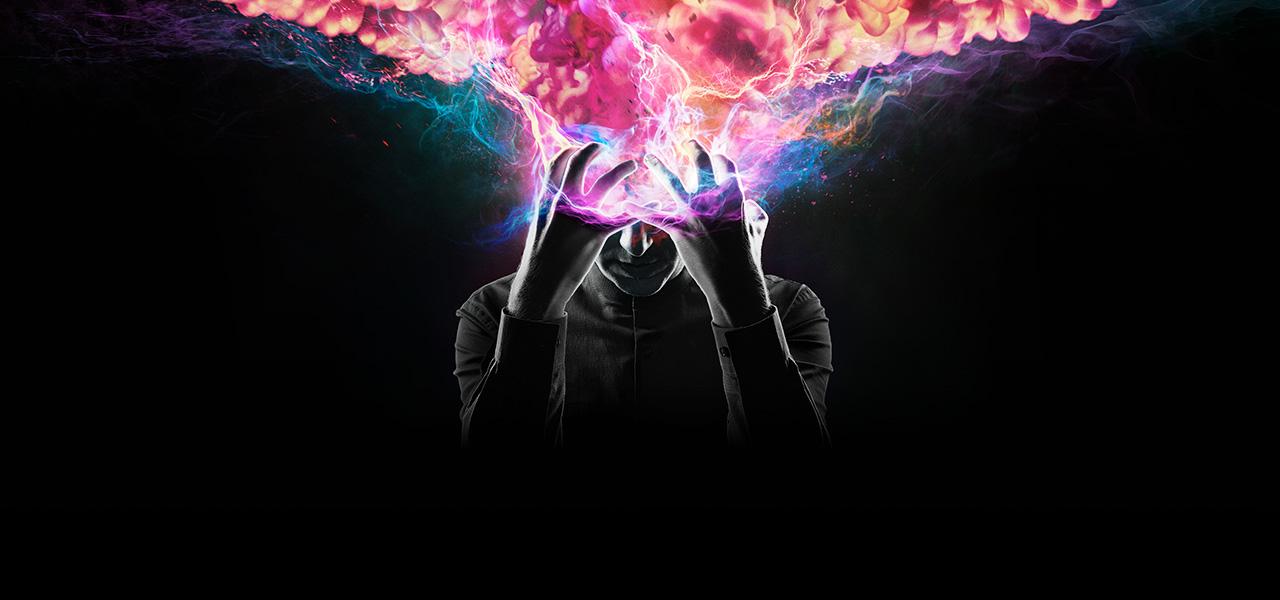
If you haven’t been watching LEGION because you’ve seen AGENTS OF SHIELD or most of the selections on Netflix and think it’s just more of the same, you’re wrong. LEGION is unlike any previous Marvel iteration, and arguably unlike anything on TV right now. Abstract and rarely straightforward, LEGION’s charm stems from its overwhelming weirdness and off-kilter tone. I believe the word the marketing team is looking for is “mind-bending,” which goes along with the show thematically, as the arc of season one follows what’s going on in David Haller’s head and how it affects the real world around him.
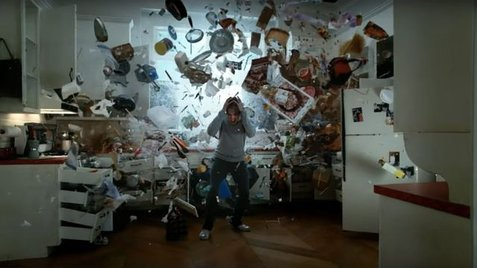
It’s a lot of this, mainly
Unfortunately, if you’re looking for a non-origin superhero story, you’re out of luck, as the narrative arc follows David (Dan Stevens) as he goes from tortured schizophrenic to realizing his potential as one of the most powerful mutants alive. During that time he oscillates between slightly timid and bewildered to entirely terrifying. Even when there’s nothing entirely dramatic going on, there’s always a lingering air of terror and paranoia that the show gives off, especially when we learn that the true nature of David’s delusions stem from a malevolent entity that has made its home in his psyche. For most of the season the audience isn’t entirely sure what the nature of this entity is, other than that it’s not the nicest thing that could make a home in your psyche.
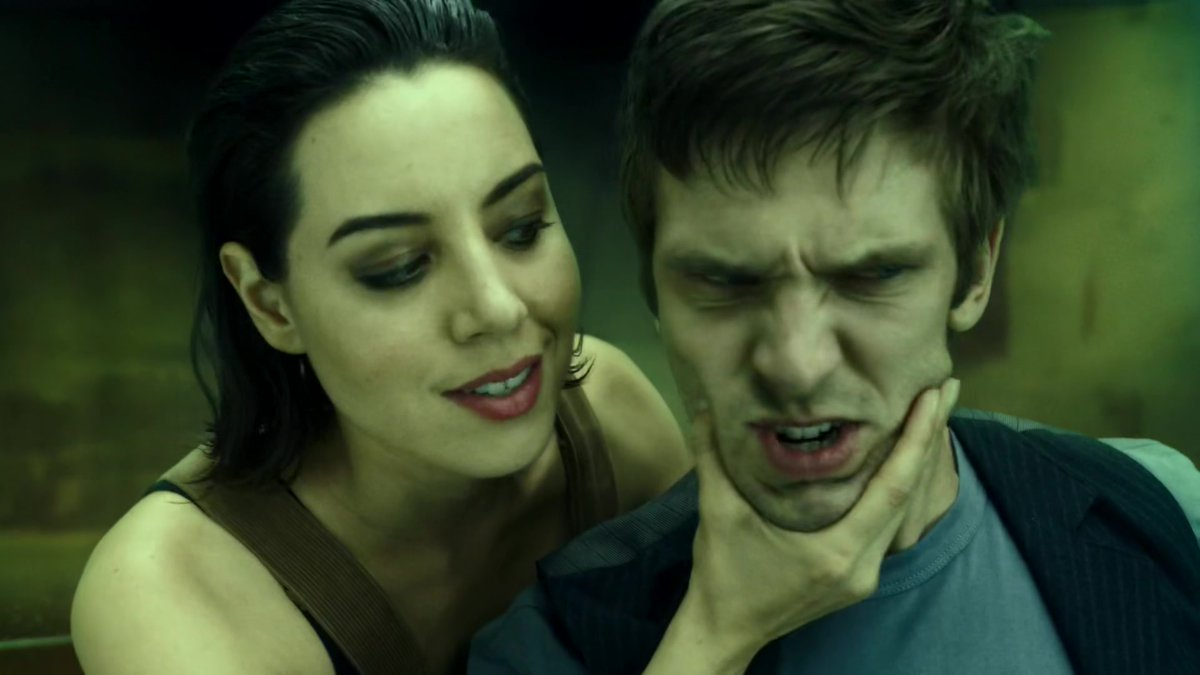
Spoiler Alert: RIP in peace your crush on Aubrey Plaza
While David is the main character, the show does allow for smaller arcs for the supporting cast, and provides interesting backstory for everyone involved. While he and Sydney’s (played by Rachel Keller) romantic arc can sometimes feel forced, their similar diagnoses of “psychosis symptomatic of greater powers” makes them a nice pairing throughout the series. There’s an episode that almost qualifies for stereotypical character-building-filler-episode status and goes deeper into this, but thankfully it also allows actual plot advances. LEGION does a good job of humanizing the entire cast and giving the audience a look into what makes each of them tick, which in turn helps keep viewers focused and interested in the plot ahead with all of its twists and turns.

If you were waiting for confirmation of Dan Stevens playing “The Rainbow Connection” on a banjo before committing to watching, this is for you
Fans of the comics will be one step ahead of the exposition, but will appreciate its ovarall fidelity to the source material, as well as the director’s interpretations of David’s world. One of the interesting facets of the show, mentioned in the original review, was the anachronistic setting, with production and costume design created just so in order to blend ‘60s mod fashion with modern sensibilities and technology. This aesthetic choice never really gets old or too unbelievable, and at one point, a character subtly comments on it by suggesting they get in contact with someone by sending them “a letter” or “an email.”
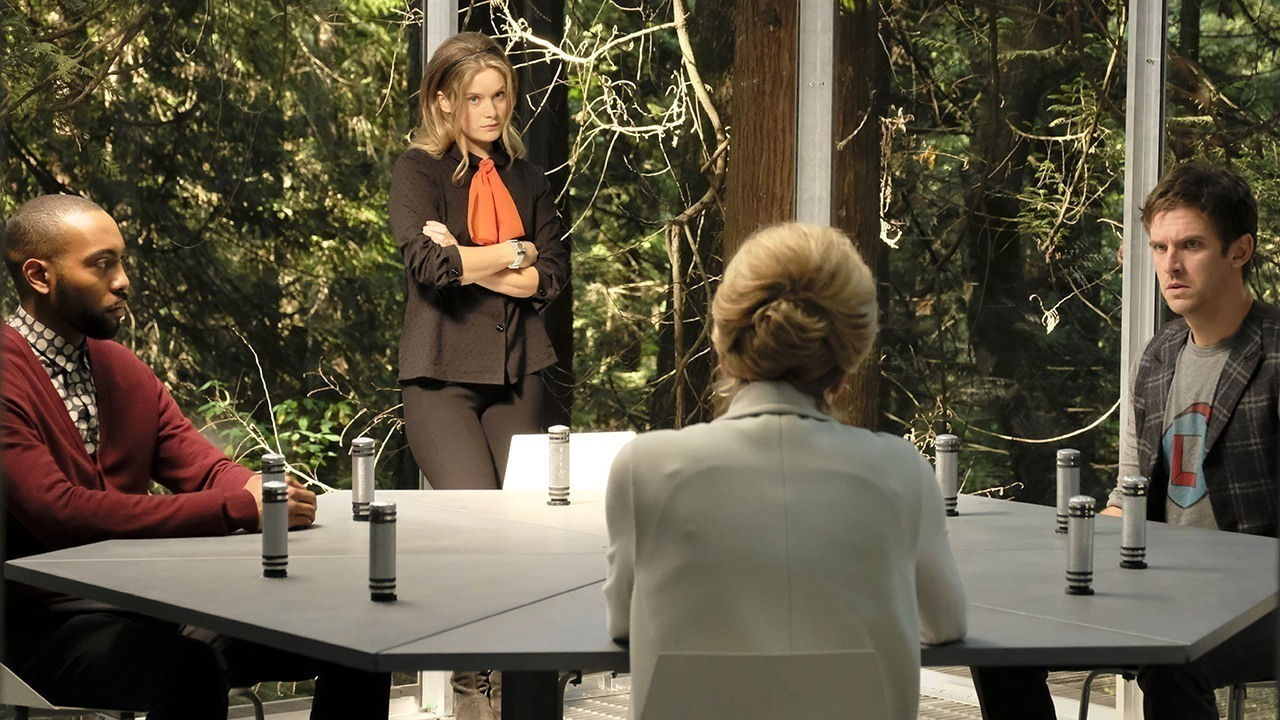
Vintage or height of fashion? Antiquated or State-of-the-Art? Who knows!
When a show or film thrives on misdirection and things being weird for little to no reason, part of the dramatic arc begins to include the meta-question of, “Will they explain any of this?,” or if they just chalk it up to artistic abstract weirdness. Fortunately, everything ends up making sense and every question I asked in my original review gets answered, but things stay pretty unexplained until the end. It can wear on a viewer for a couple episodes, but LEGION always manages to do something or introduce a concept that revitalizes interest, such as the introduction of Jermaine Clement as a beatnik frozen in the astral plane towards the middle of the season.
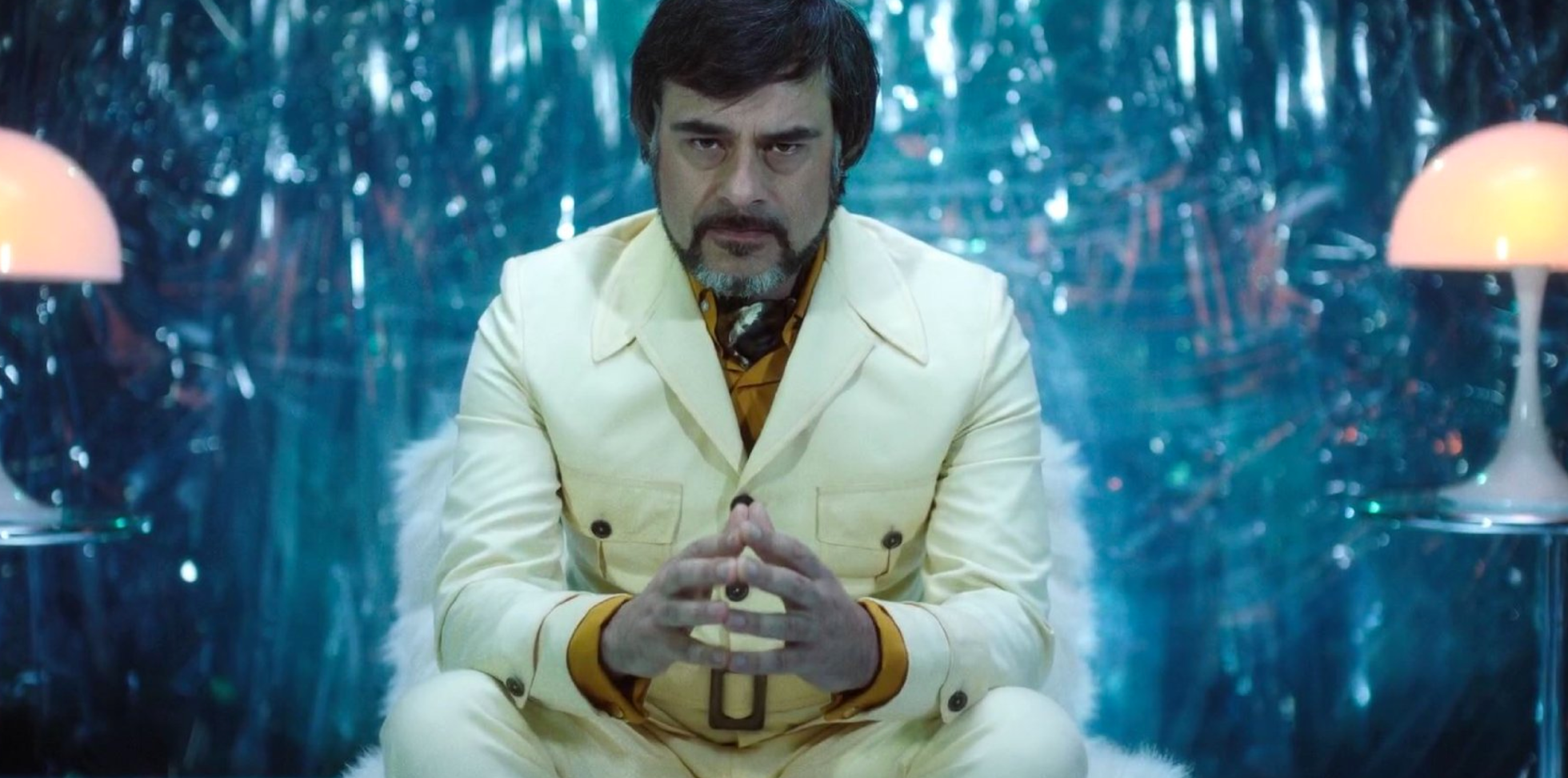
Clement gives a performance that’ll make you say, “Oh, shit, it’s Jermaine Clement!”
LEGION delivers a wonderfully scrambled narrative that makes deciphering it part of the fun of watching it. Dan Stevens demonstrates great range, which is necessary given the emotional fluidity of the original character of David Haller. In addition, Aubrey Plaza finds the role of a lifetime, where her ability to play a more terrifying version of herself helps complement the show’s disjointed and off-kilter tone. LEGION also looks fantastic; the visual language and aesthetics are integral parts of the show’s composition and make it all the more interesting to watch and attempt to figure out just what’s happening. The show itself makes a transition as it evolves from David’s original fractured mindscape that makes him an unreliable narrator to David gaining more control of his own mind and powers and figuring out who he truly is. The show begins to make more sense and becomes slightly less disjointed, and things that seemed to be delusions or illusions are more coherent. Judging by its first season, LEGION is another example of FXX dominating the TV landscape, and I look forward to season two.
Verdict: Recommend




1 Response
[…] staff considering our coverage of FARGO, ATLANTA, IT’S ALWAYS SUNNY, BASKETS, BETTER THINGS, and LEGION, in addition to the fact it hosts THE AMERICANS, one of the best shows nobody is watching, any new […]